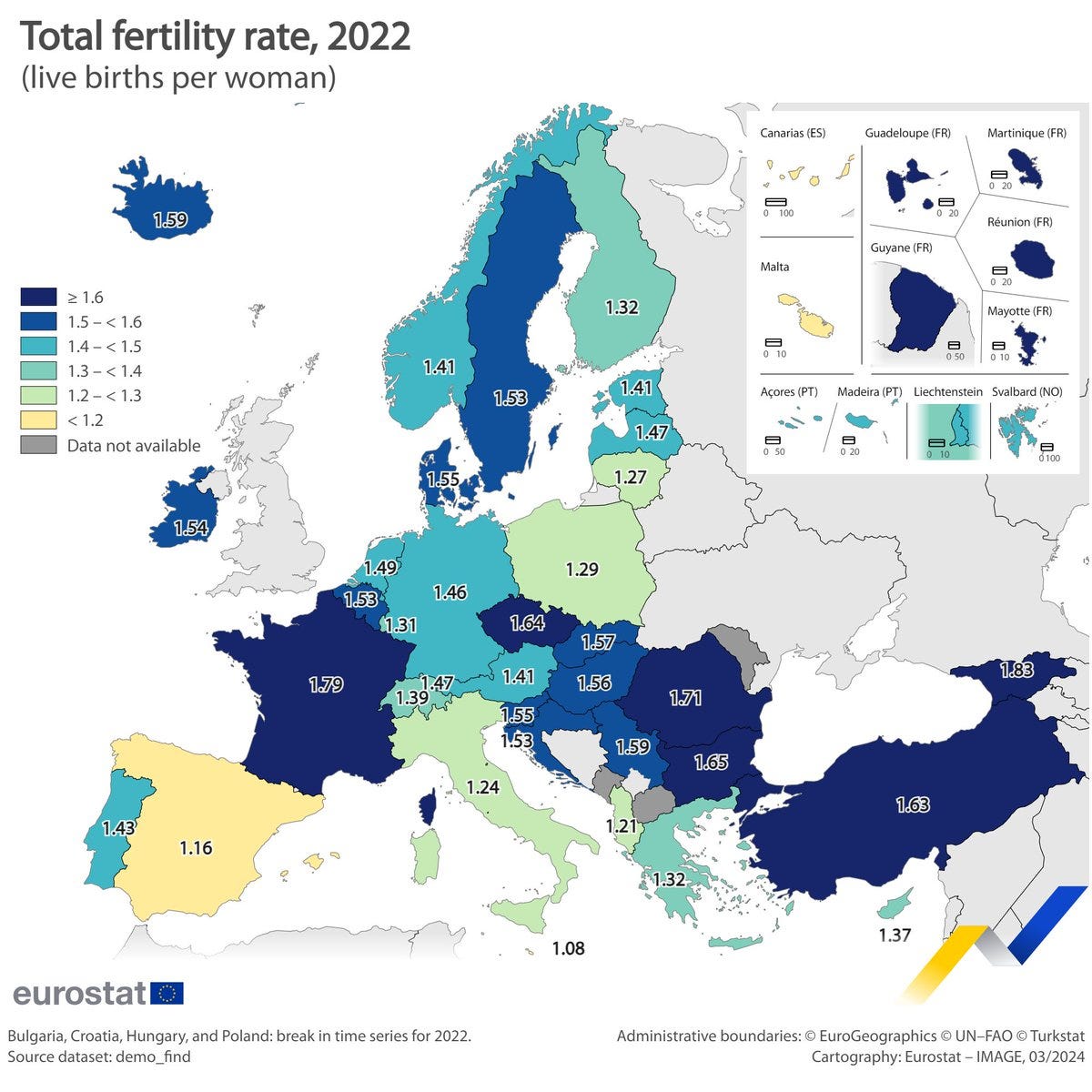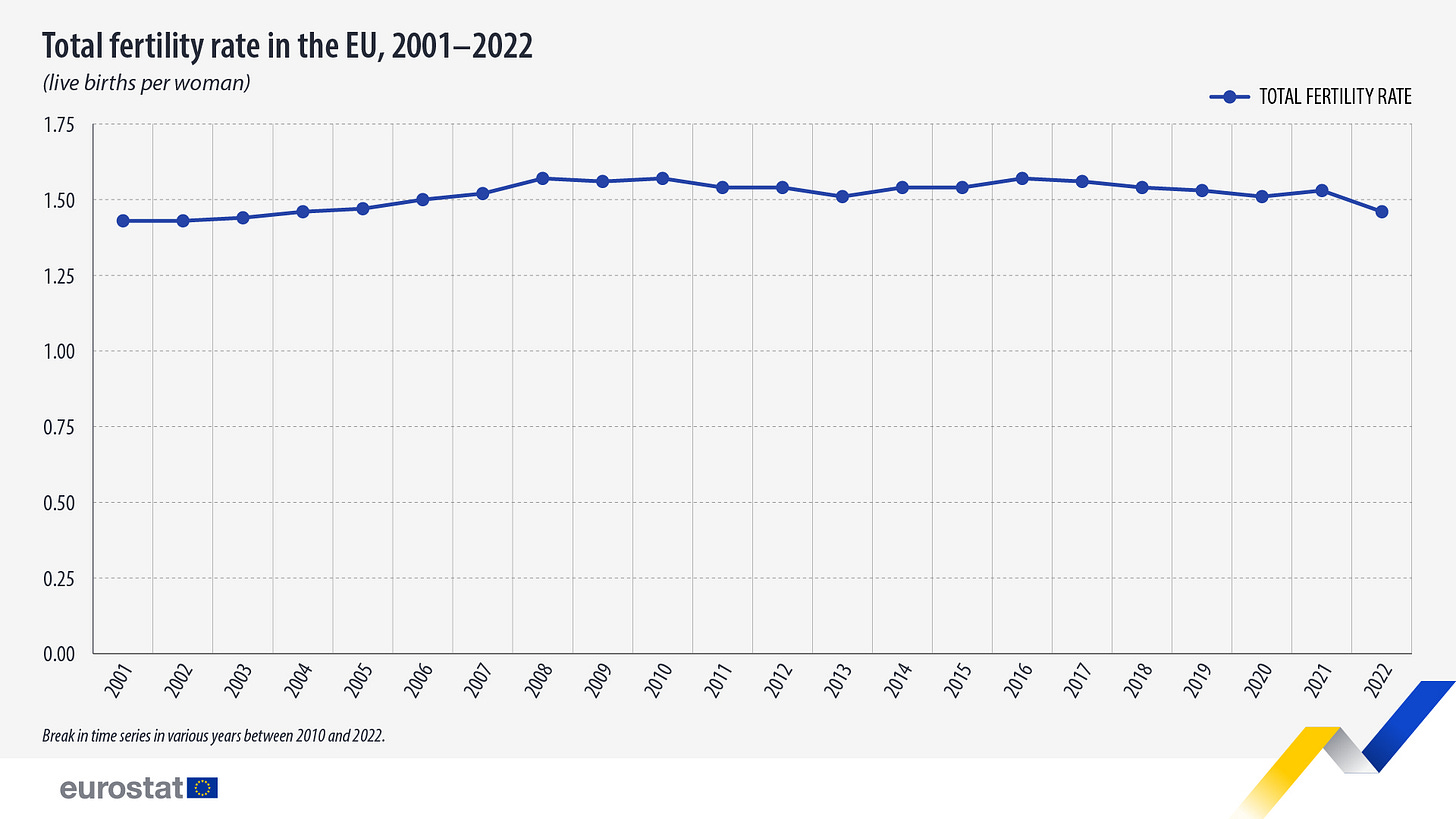2022 figures: ultra-low fertility sweeps Europe and Turkey
Lowest births in EU ever, French fertility overtakes Turkey, Serbia continues to distance Albania
Eurostat has released figures and graphics on fertility rates in the European Union in 2022. The figures also cover selected other countries (Turkey, Albania, Iceland, Norway, Serbia; but not the post-Brexit UK).
The main news is that the EU-27 (that is, covering all countries that are currently member of the EU) in 2022 had the lowest births in its history; at least as far back as we have figures, that is to 1960. 3.88 million babies were born in the EU in 2022, down from 4.68 million in 2008.
The total fertility rate in the EU was 1.46 in 2022, down from 1.53 in 2021, but that figure has been relatively stable since 2001.
In 2022, France had the highest total fertility in the EU (1.79), followed by Romania (1.71), Bulgaria (1.65), and Czechia (1.64). The stereotypical Italian “mamma” with many children is now for the most part a thing of the past. The lowest fertility rates were seen in Malta (1.08), Spain (1.16) and Italy (1.24).
Northern Europe now has slightly higher fertility rates, but the famed Nordic model of feminism, childcare support, and work-life balance no longer seems to be effective in sustaining the population. Higher fertility in those countries is significantly driven by higher immigrant fertility.
Remarkably, since 2019 France’s fertility rate (1.79) has significantly overtaken Turkey’s (1.63). Albania also has a remarkably low fertility rate of 1.21, significantly lower than Serbia’s 1.59 (Serbian fertility overtook Albania’s in 2018 and has been pulling ahead since). This is a remarkable reversal given how the Serbs lost their ethnic majority to Albanians in Kosovo due to differential birth rates in the past. While we don’t know how these trends will pay out in the long term, one thing is clear: Islam and social conservativism are no longer a guarantee of high birth rates in our global Age of Ultra-Low Fertility.




As I mentioned before I do think the fact that France was the first country to undergo the demographic transition and that it is consistently one of the highest TFR European countries post-war (and not due to immigrants) are not unrelated things.
Smaller populations will help humanity win the battle against life threatening climate disaster and help save the other species we share the planet with by protecting their shrinking habitat.
Robots equipped with artificial general intelligence will wipe our aging asses and grow and prepare our food. Young people will have less competition for jobs so their wages will rise and with less demand for housing the cost of the existing housing stock will become more affordable. Nobel Prize winner Paul Krugman recently looked at low birth rate Japan and penned an amazingly optimistic report on its economic conditions. "In some ways, Japan, rather than being a cautionary tale, is a kind of role model - an example of how to manage difficult demography while remaining prosperous and socially stable.